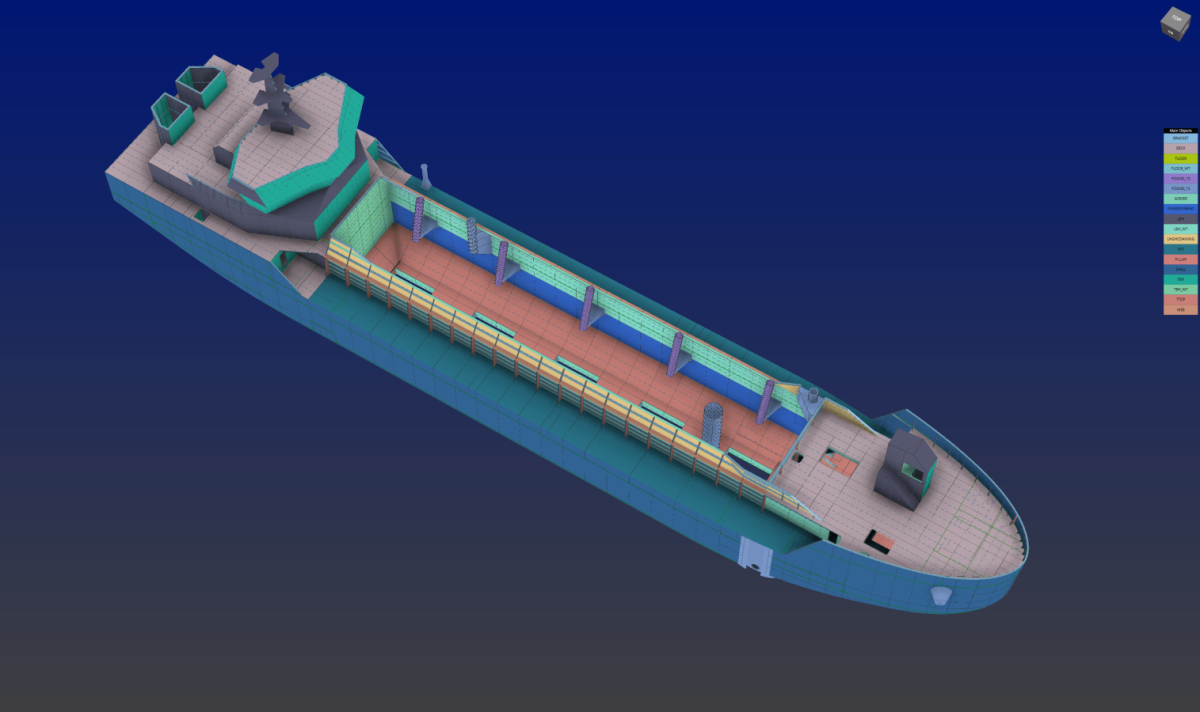
Damen Engineering Gdansk in cooperation with Napa and Bureau Veritas has approved the class design of the vessel based on a 3D model of the hull structure.
The hull structure design of
the Damen TSHD 1000 (Trailing Suction Hopper Dredger) ship made using
NAPA's specialized software has received class approval from Bureau
Veritas based on a 3D model.
3D modeling of a vessel is
commonly used at various stages of project development.
Differentiated 3D modeling is used by ship designers and engineers to
visualize hull geometry, strength and stability calculations of the
vessel. The 2D drawing generated from the 3D model is a common and
widely used information carrier in the ship design and production
process.
There are several steps in
the commonly accepted and functioning process in the industry. The
designer works with the 3D model, then translates this into 2D
drawings to obtain approval of the vessel's class. Once the 2D
drawing information is received, classification societies must
generate a new 3D model based on the 2D drawings provided to perform
independent calculations and provide their feedback on the 2D
drawings. Finally, in response to the society's comments, the
designer must translate the 2D drawings back into 3D to make changes.
In the new approach, 2D
drawings have been eliminated from the process. This was made
possible by using the OCX (Open Class eXchange) format in the various
neutrals.
The use of the OCX format
allowed the parties to optimize the process to save time, but also to
improve communication and facilitate collaboration between the
designer and the person responsible for approving the hull design.
The 3D tool used by Damen
Engineering is provided by the Finnish company NAPA. The Gdańsk
office has been using its software for many years, but the
integration of the OCX format in the tool has opened up the
possibility of exchanging data in a whole new quality.
The traditional process
limits creativity, slows down communication, forces the creation of
duplicate drawings, which increases the risk of mistakes.
Katarzyna
Romantowska-Jaskólska, managing director of Damen Engineering
Gdansk, said that the ability for all partners to review and approve
the same 3D model completely changes the rules of the game for ship
designers and classification societies, as well as for stakeholders
in the said process.
NAPA, together with a
consortium of companies supporting the development of the OCX format,
intends to bring OCX into widespread use.
Damen Engineering Gdansk
intends to apply and develop the approval of further vessels using
only the 3D model (3D Model Based Aproval process), also in
cooperation with the classification society DNV and others.
Part of the Dutch
shipbuilding group, Damen Engineering Gdansk was established in 2013.
It designs prototypes of specialized vessels.


